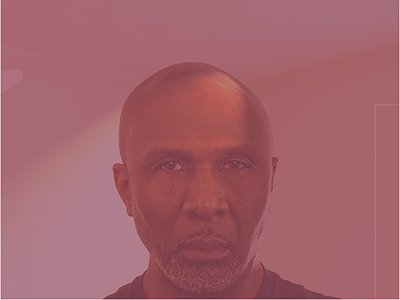Name: Kyle Austin aka Hprizm / High Priest
Nationality: American
Occupation: Producer, lyricist
Current release: Hprizm has just released a collection of remixes based on Gerald Cleaver's Signs album. The outcome is a work that congenially deepens and expands the original's more subtle moments and works as a stand-alone sound world in its own right. "When I approached remixing Signs, I thought about the sound design and treated it more like a virtual collaboration," Hprizm says about his approach to the remixes, "There were some elements that needed to stay intact and others that I thought can augment. With modular production there are subtle moments that can extend into full pieces. Gerald had a lot them so zeroed in on them." The attention to detail has paid off, according to Cleaver: "He took the DNA of the songs and made them his." The Signs Remixes are out now on 577.
Recommendations: Follow antipop members @_m.sayyid, @mrballbeam71 @tronman on instagram and @antipopny on twitter.
If you enjoyed this interview with Hprizm and would like to find out more about his work, visit him on twitter, Instagram and bandcamp.
When did you start writing/producing music - and what or who were your early passions and influences? What was it about music and/or sound that drew you to it?
I started producing music in my late teens.
My early influences were Prince and Marly Marl. Those were the first people that I read about using particular drum machines at the time. I liked that you can realize your vision outside of a music studio and began working on four track cassette recorder.
For most artists, originality is preceded by a phase of learning and, often, emulating others. What was this like for you: How would you describe your own development as an artist and the transition towards your own voice?
My first set up was a Korg Midi Recorder, The Korg 800 and an Alesis HR-16
Later, I grabbed a sampler from Yamaha that was similar to the SK-1 (VSS-Series). I would make tapes and play for myself mostly.
How do you feel your sense of identity influences your creativity?
I had very little formal music education when I first started. So I never tried to emulate anyone.
I heard things that I wasn’t hearing anywhere else and looked for ways to execute that vision.
What were your main creative challenges in the beginning and how have they changed over time?
The biggest challenge was having the time and space to create and find outlets for my particular voice.
As creative goals and technical abilities change, so does the need for different tools of expression, be it instruments, software tools or recording equipment. Can you describe this path for you, starting from your first studio/first instrument? What motivated some of the choices you made in terms of instruments/tools/equipment over the years?
I started producing with less than ten seconds of sampling time and digital audio wasn’t commercially available yet - I knew the medium would reach the stage that we are at now in terms of technology. With that, it was my hope that music would be more about frequency as opposed to song based.
We made it there in some respects, but pop content will always be what it is, I guess.
Have there been technologies or instruments which have profoundly changed or even questioned the way you make music?
Sampling and FM/Phase Synthesis are two big areas that have given me a pathway to explore. Tape is a key component also.
Collaborations can take on many forms. What role do they play in your approach and what are your preferred ways of engaging with other creatives through, for example, file sharing, jamming or just talking about ideas?
File Sharing is something that suits my temperament. But nothing beats studio sessions.
The Labels and Artists that make the necessary investments in rehearsal and recording studio time usually win because there is a chemistry that is built from those times.
Take us through a day in your life, from a possible morning routine through to your work, please. Do you have a fixed schedule? How do music and other aspects of your life feed back into each other - do you separate them or instead try to make them blend seamlessly?
I work on music either late in the evening or in the early morning. In general I would say that my art is seamlessly integrated into my life.
Can you talk about a breakthrough work, event or performance in your career? Why does it feel special to you? When, why and how did you start working on it, what were some of the motivations and ideas behind it?
Performance wise a break though is usually something I can assess after that fact as oppose to while I’m in it.
There’ve been a lot of great moments. Semi-recently in 2019 when (Installation Artist: Kevin Beasley) curated a series at the KITCHEN (nyc). I was able to present my audio-visual work with Projection, Analog Screens and Multi-Channel Audio.
Touring with Public Enemy and Radiohead were high points as well.
There are many descriptions of the ideal state of mind for being creative. What is it like for you? What supports this ideal state of mind and what are distractions? Are there strategies to enter into this state more easily?
Ideally when you are in a state of “no mind” and are only focused on one task. That is the ideal space.
Anything that prevents you going there at the moment of creation is somewhat of a distraction.
Music and sounds can heal, but they can also hurt. Do you personally have experiences with either or both of these? Where do you personally see the biggest need and potential for music as a tool for healing?
I honestly feel that music can heal. It would be my hope that more artists would utilize that property in their work.

